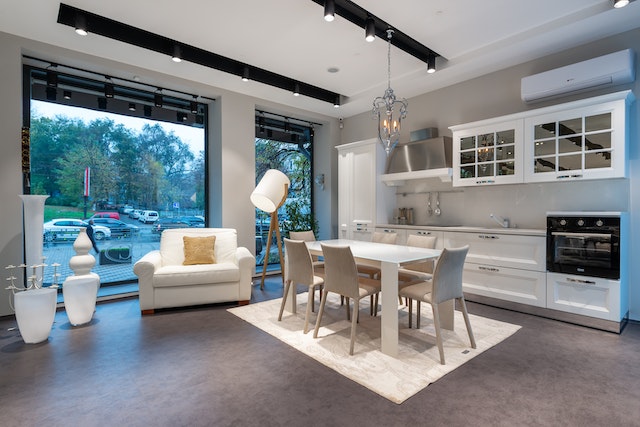Split systems are a great option for cooling and heating your home. They have a lot of pros, but there are also some cons to consider before you make a decision. Here is a look at the pros and cons of split systems.
Split systems are a popular choice for cooling and heating homes and businesses. But what are the pros and cons of split systems? Here’s a look at the good and bad of split systems.
Split systems melbourne are a popular choice for cooling and heating homes and businesses. They offer a number of advantages, including:
- They are more efficient than window units.
- They are more affordable than central air conditioning systems.
- They can be installed in homes and businesses of all sizes.
However, split systems also have some disadvantages, including:
- They are not as effective at cooling or heating large spaces as central air conditioning systems.
- They can be more expensive to install than window units.
- They require more maintenance than window units.
Overall, split systems are a good choice for cooling and heating homes and businesses. They are more affordable and efficient than central air conditioning systems, and can be installed in smaller spaces. However, they require more maintenance than window units.
Pros of Split Systems:
Split systems have many benefits for both homeowners and businesses. They are efficient, quiet, and can save you money on your energy bill. Additionally, they are easy to maintain and often come with a warranty. If you are considering a split system for your home or business, here are a few things to keep in mind.
First, split systems are more efficient than other types of air conditioning systems. They use two separate units to cool your home or business, which means that the system is not working as hard to achieve the desired temperature. This can lead to significant energy savings, particularly during the summer months.
Second, split systems are often quieter than other types of air conditioning systems. This is because the two units are separated, which eliminates the noise that can be created when one unit is working overtime.
Finally, split systems often come with a warranty. This means that you can rest assured that your system will be covered in the event of a malfunction.

All in all, split systems offer a number of benefits that make them a wise investment for homeowners and businesses alike. If you are considering air conditioning, be sure to consider a split system.
1. Low noise –
Split systems are generally quieter than other types of cooling and heating systems.
Split systems are generally quieter than other types of cooling and heating systems. This is because the compressor is located outside the living space, and the fans are smaller and quieter than those on other systems.
2. Energy efficient –
Split systems are more energy efficient than many other types of systems.
Split systems are more energy efficient than many other types of systems. This is because they use less energy to operate and because they are able to cool or heat specific areas of your home, as opposed to the entire space.
3. Flexible –
Split systems can be adapted to a variety of situations.
Split systems can be adapted to a variety of situations. They can be used in homes, businesses, or other places where both heating and cooling are needed. Split systems can also be used when one part of a building needs cooling and another part needs heating.
Cons of Split Systems:
When it comes to split systems, there are a few cons to keep in mind. One is that they can be more expensive to install and maintain than other types of air conditioning systems. Additionally, split systems are not as efficient as other types of systems and can use more energy.
1. Installation can be difficult –
Installing a split system can be tricky, and it’s often best left to a professional.
Although split systems are becoming more popular, they can still be difficult to install. Many people choose to have a professional do the installation, as it can be tricky to get everything set up properly. There are a few things to keep in mind when installing a split system, such as the location of the outdoor unit and the size of the indoor unit. If you’re not comfortable doing the installation yourself, it’s best to call in a professional.
2. Cost –
Split systems can be more expensive to install than other types of systems.
Split systems can be more expensive to install than other types of systems. The reason for this is that the installation requires two units: an outdoor unit and an indoor unit. The outdoor unit is responsible for cooling and heating the air, while the indoor unit houses the compressor and the fan. This setup can be more expensive than a single unit system, which contains both the outdoor and indoor units in one housing.
3. Maintenance –
Split systems require regular maintenance to keep them running smoothly.
Regular maintenance is key to keeping your split system running smoothly. Annual tune-ups and filter changes are essential, as is cleaning the coils and drains as needed. Be sure to follow the manufacturer’s instructions for your specific system.
Overall, split systems are a great choice for cooling and heating your home. They have a lot of pros, but there are also some cons to consider. Make sure to weigh all the pros and cons before you make a decision.



